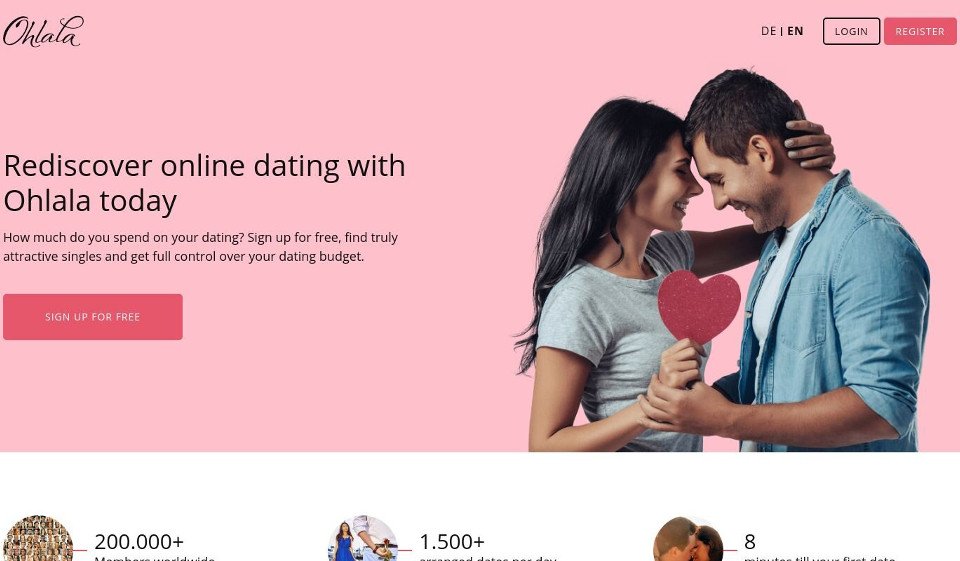
Introduction
In an age where technology has revolutionized the way people connect and interact, the dating and escort services industry has also seen significant changes. One platform that is making waves in this space is “Ohlala”. Founded in 2015, Ohlala has garnered attention for its unique approach to connecting people seeking companionship, whether it’s for a casual date or for compensation. In this article, we will explore the world of Ohla, its concept, features, controversies, and its place in the changing landscape of online dating and escort services.
The concept of Ohla
At its core, Ohla is a platform that connects people seeking companionship for a wide range of activities, from traditional dating to more unconventional encounters. What sets Ohlala apart from other dating apps is the way it arranges paid dates. Unlike traditional escort services, Ohlala does not facilitate direct transactions for sexual services. Instead, it allows users to negotiate and agree on the terms of a date, which may or may not include financial compensation.

How does Ohlala work?
Profile creation: Like most dating apps, Ohla requires users to create a profile with photos, personal information and interests. Users can specify whether they are open to paid dates, unpaid dates, or both.
Browsing Profiles: Users can browse through other members’ profiles, filtering by various criteria such as location, age and interests.
Requesting a date: If a user finds someone they are interested in, they can send a date request, indicating what activity they have in mind and whether they offer financial compensation. Ready to do. The recipient can then accept, reject, or negotiate the terms of the date.
Chatting: Once a date is agreed upon, users can chat through the app’s chat feature to finalize details and make arrangements.
Meet in person: The platform encourages users to meet in public and prioritize safety during encounters.
Controversies surrounding Ohlala
Ohla has not been without its share of controversies and legal challenges. Critics argue that the platform blurs the line between dating and escort services, potentially facilitating illegal activities. Some of the concerns and controversies associated with Ohlala include:
Legal Issues: The legality of Ohlala’s business model has been a matter of debate. In some jurisdictions, arranging pay dates is considered illegal, while in others, it is tolerated as long as it does not involve explicit sexual services.
Sex trafficking concerns: Critics argue that Ohla may inadvertently provide a platform for sex traffickers to exploit vulnerable individuals, especially considering the potential financial transactions involved.
Security concerns: Some users have reported feeling unsafe during Ohla dates, as the platform lacks the extensive security measures and verification processes seen on traditional dating apps.
Public Perception: The concept of Ohlala has received backlash from various quarters, with many viewing it as an escort service in disguise, contributing to the stigmatization of sex work.
Platform Changes: In response to legal and security concerns, Ohlala has made significant changes to its business model, including temporarily shutting down its services in certain areas and repositioning itself to focus more on traditional dating. Branding is involved.
Evolution of Ohlala
Ohla’s journey is marked by adaptation and change in response to the challenges it faces. Here are some important milestones in its evolution:
Launch and initial success (2015-2016): Ohlala was initially launched in Germany in 2015 and quickly gained attention for its unique approach to dating. It spread to other cities and countries, enjoying a period of growth and popularity.
Temporary Shutdown (2016-2017): In 2016, Ohlala temporarily shut down its services in Germany due to legal concerns. During this time, the company re-evaluated its business model and made significant changes.
Rebranding as a traditional dating app (2017): In response to legal challenges, Ohla rebranded itself as a traditional dating app, shifting its focus away from paid dates and providing a safe and respectful dating environment. He stressed his determination to do so.
United States Expansion (2017): Ohla made its debut in the United States, entering a highly competitive dating app market.
Relaunch with Paid Dates (2019): After rebranding as a traditional dating app, Ohla once again introduced the option for users to set up paid dates, albeit with new focus on safety and responsible dating. The end is emphasized.
Continuous Adaptation (2020-present): Ohla has continuously evolved, making changes to its platform and policies in response to user feedback, legal requirements and societal changes.

The future of Ohla
As the dating and escort services industry continues to evolve, Ohla’s future is uncertain. The platform faces ongoing challenges related to legal compliance, security and public perception. To secure its place in the market, Ohla will need to address these concerns by providing a unique and valuable service to its customers.
Result
Ohlala represents a bold and unconventional approach to the world of online dating and escort services. His journey is marked by conflict, adaptation and change. While it has faced legal challenges and safety concerns, it has also sparked important discussions about the boundaries between dating and escort services.
Whether Ohla can successfully face these challenges and continue to provide a platform that connects people seeking companionship remains to be seen. In a rapidly changing industry, it serves as a unique case study between technology, relaesulttionships, and social norms.
Post a Review
Reviews
No reviews yet.